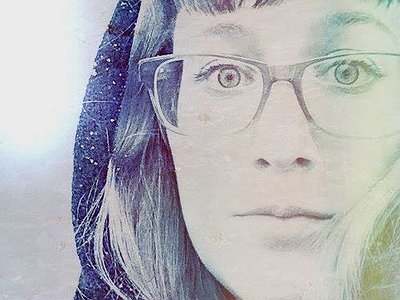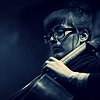Part 1
Name: Veroníque Vaka
Nationality: Canadian
Occupation: Cellist, composer, sound artist
Labels: Moderna
Current Release: Erlendis
Musical Recommendations: Daníel Bjarnason and Arvo Pärt.
When did you start writing/producing music – and what or who were your early passions and influences?
I began writing and producing music in 2010 with commissions for film, theater and collaborations with artists from Montreal. From the age of five I studied the cello and later on I became interested in composing so I went on to study electro-acoustic composition in the University of Montreal. During my studies my perception in music changed, both writing and listening. I started to be aware of my environment in a different way as I got more and more interested in “the Art of listening”. So the challenge of working with the cello, or any other classical instruments, and the environment transformed to a passion with time.
For most artists, originality is first preceded by a phase of learning and, often, emulating others. What was this like for you? How would you describe your own development as an artist and the transition towards your own voice?
In general I think it is hard to separate originality from what you have learned, I rather think it is a subconscious phenomenon based on knowledge and experience so it is an on-going process. Maybe originality comes from a kind of “problem solving”. I feel the best way is to stop thinking and let your curiosity take control. For me, it was the sum of my studies and falling in love with sound recording. There I started slowly to build my own voice, using field recording and classical instrumentation - focusing on texture.
I feel getting to comfortable as a composer is the same as having a road block that limits your development. That is why it is important for me to always keep learning. From September 2015, I will study composition with the composer Páll Ragnar Pálsson, to slowly taking me forward by this on-going development.
Besides studying in school and experimenting by myself I learned a lot from working with people by comparing ways of working and giving/receiving tips.
What were your main compositional- and production-challenges in the beginning and how have they changed over time?
I think the main challenge during the compositional or production process is to “let it go”. Knowing when to stop and say “its finished”. With all the tools and edit possibilities of DAW (digital audio workstation) it is easy to continue developing a piece endlessly until it becomes something far from what you aimed for in the beginning. What I have learned since then is to stick with my ideas and to make changes mainly in the creative process besides minor adjusting. Many times radical new ideas come to me during the production process but I feel it is often better to write them down and use them later. There is something beautiful about always wanting to keep working on a piece and there is something scary about letting go. For me it's sometimes a difficult balance but I feel it works best when keeping Ideas rather than applying them can give you motivation for the next work you do, which in return takes some of the pressure of the work having to say everything you have to say in one piece. Ultimately you part ways letting go and the work lives its own life and you continue your own.
Tell us about your studio, please. What were criteria when setting it up and how does this environment influence the creative process? How important, relatively speaking, are factors like mood, ergonomics, haptics and technology for you?
It is true for me that the environment affects a lot my creative process so I developed with time something that we can call a routine before working to create a good mood. I love taking walks at the shore in all weathers and seasons. Then I make coffee, light a candle, open the window and work. For editing/mixing sessions I like the mornings the most. The calmness when you are still a little bit tired, it is quite outside and you have a clear mind free from the day to day chores. I like to work in a small space where everything I need is close by, an instrument generally a cello and/or piano, paper, pencil, microphone and computer with speakers.
What are currently some of the most important tools and instruments you're using?
The most important tools are my cello, the Zoom for field recording, the piano and a sketchbook. I used a lot of objects to create textures and sounds for the soundbank and I use Ableton Live to edit and mix.
Many contemporary production tools already take over significant parts of what would formerly have constituted compositional work. In which way do certain production tools suggest certain approaches, in which way do they limit and/or expand your own creativity? Are there any promising solutions or set-ups capable of triggering new ideas inside of you as a composer?
Contemporary production tools definitely expand my creativity. The process of writing on paper putting it in Sibelius, recording and then working in the DAW gives a lot of freedom and it is a great “playground” where you can add ideas without fear of making mistakes because you can always revert to older versions. I don’t think it limits creativity, having all those tools, you get the chance to try different things and choose what you will work with.
But I feel that you also need discipline or self-confidence when you are working with production tools. Using Sibelius for example, I know that I will never use the playback when I am composing because I like to trust my ideas and not be influenced by the sound of sampled instruments. Although it is a great tool and helps a lot finding mistakes and so on they don't come close, in my opinion, to representing the live acoustic quality and human interpretation of musicians, even if the quality of the samples and programing are always getting better.
Could you describe your creative process on the basis of a piece or album that's particularly dear to you, please? Where do ideas come from, what do you start with and how do you go about shaping these ideas?
I am very organized before starting a project. Most of the time I will take a sheet of paper and draw the “contour” of the piece with a list of the instruments I will use, with the intensity and the texture - a little bit as a “sound/melodic” scenario. I like to read about instrumentation if I am working with new instruments or watching tutorials if I want to try something new in Ableton Live. I really like to get as much knowledge as possible before starting to work.
After that, I need fresh air, walking or going to the countryside for a moment to imagine and let my mind wander freely and to get inspired by my environment. Sometimes I also listen to classical/modern music to inspire me. Then I come back home, and start the draft and record ideas. And things go further and develop from there.






